Posted on: 14 August 2020
This week we have two leadership messages, both related to reset and stabilisation.
The first comes from Catherine Thompson, Director of the Partnership’s Planned Care Alliance and Matt Graham, Director of the West Yorkshire Association of Acute Trusts (WYAAT) and Planned Care Alliance Lead.
The second message comes from Hannah Davies, CEO for Healthwatch Leeds and Chair of the Leeds People’s Voices Group.
Restarting planned care services, safely
This leadership message comes from Catherine Thompson, Director of the Partnership’s Planned Care Alliance and Matt Graham, Director of the West Yorkshire Association of Acute Trusts (WYAAT) and Planned Care Alliance Lead.
In their video blog, Catherine and Matt talk about the impact that Covid-19 has had on planned care services in West Yorkshire and Harrogate, and what the current situation is across the area. The aim is to carry out the maximum number of planned care procedures possible between now and winter. Catherine and Matt outline the approach to this challenge and how safety for our patients and our staff is priority.
Hello my name is Hannah
“It is essential that recovery is planned in a way that inclusively supports those in greatest need. We are asking you to work collaboratively with your local communities and partners to take urgent action to increase the scale and pace of progress of reducing health inequalities, and to regularly assess this progress.” (NHS planning guidance - phase 3)
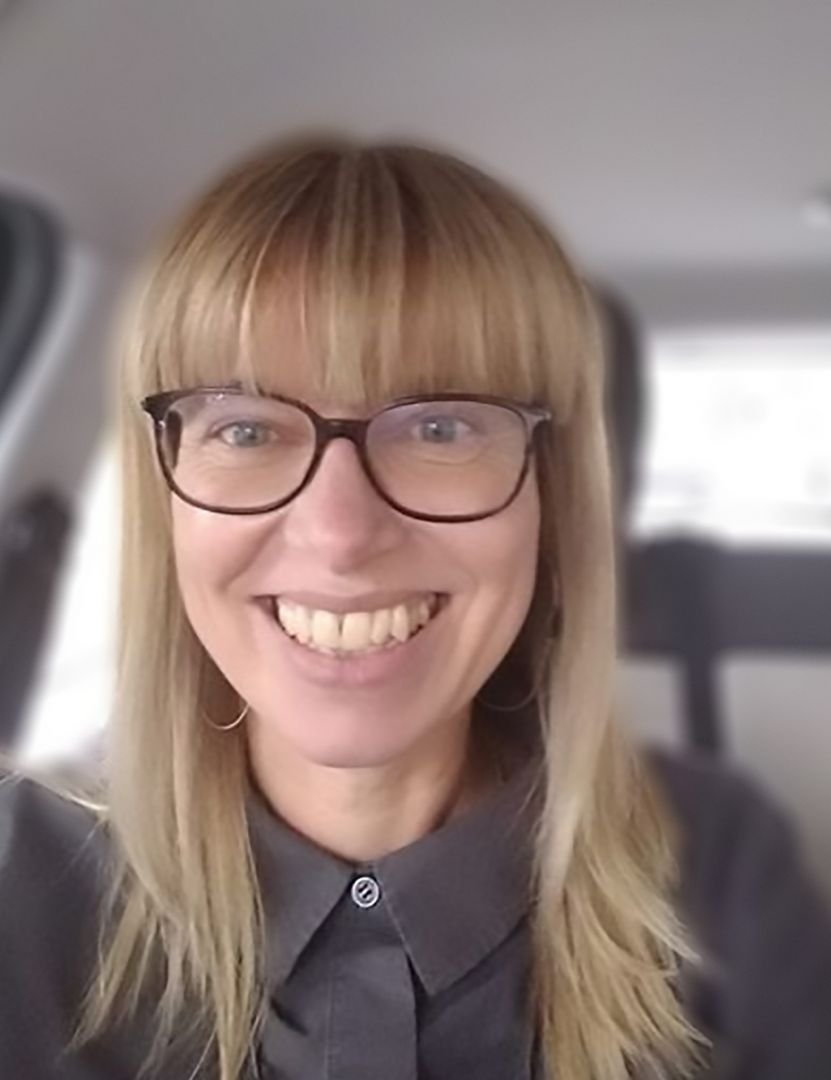 Hello, my name is Hannah Davies and I am Chief executive of Healthwatch Leeds, one of the local Healthwatch organisations within our region working to bring the voice and experiences of people in West Yorkshire and Harrogate into our decision making.
Hello, my name is Hannah Davies and I am Chief executive of Healthwatch Leeds, one of the local Healthwatch organisations within our region working to bring the voice and experiences of people in West Yorkshire and Harrogate into our decision making.
Across our work within West Yorkshire and Harrogate we have been long- standing proponents that people’s voices need to be at the centre of health and care decision making. Not because it’s a nice thing to do, or to meet the requirements of an equality assessment tool, but because without it we cannot make informed decisions about health and care services. It is as essential as that.
Within Leeds, there is a collective understanding and ambition that we need to have the voices of people with the greatest inequalities at the centre of the decision making process.
People’s insight, sitting alongside good data, should be at the core of both the design of services and the evaluation and monitoring processes. Population health management is not solely about good data but needs to be coupled with people’s insight. Data is the hard evidence; the people’s insight is the softer evidence. The former is how it works and the latter how it feels.
One without the other only tells part of the story and potentially doesn’t lead us to the right solutions, which will enable people in our local communities to be well and lead happy and healthy lives.
These voices need to be listened to across all our health and care decision making processes, from each of our local placed based Health and Wellbeing Boards through to our local community versions of the Primary Care Networks.
How are we assured that the voice of people and inequalities is at the centre of all levels of leadership? Can we see that, do we hear that, do those boards feel the same as they always have? Are we making different decisions?
The how to do that involves a number of things. Us as a health and care system being brave and giving up some power, recognising that we don’t have all the answers and that there are others who we need to bring in to listen to and be educated by, when we develop or make changes to services. We need the expertise to support us to do this, there are no “hard to reach” communities, it is that we are not working in the right way with the right partners.
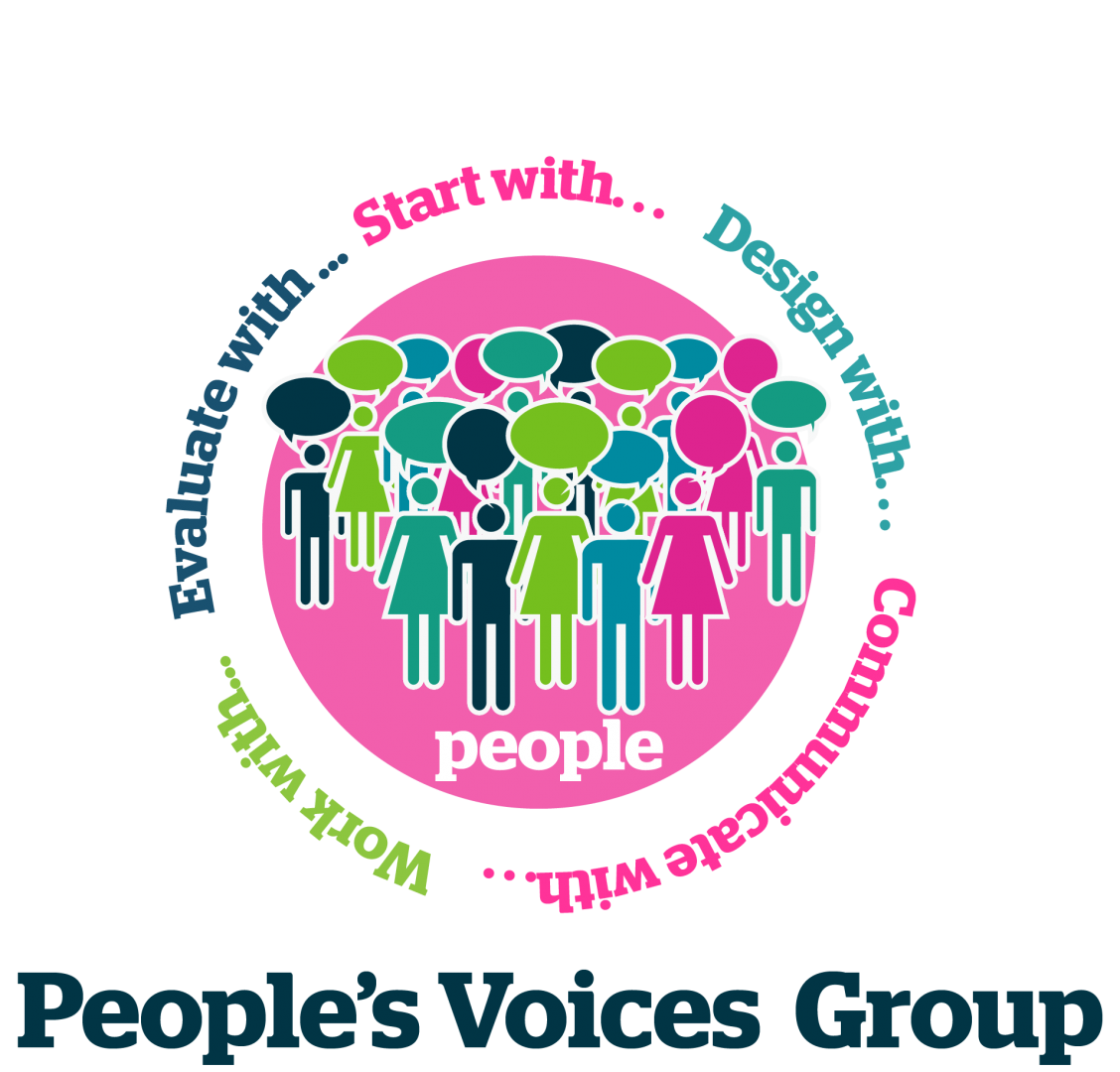 We have the tools to do this in many areas of our partnership in particular working with our third sector partners. The sector brings a wealth of expertise in working with many of the communities on a day to day basis, they are part of the community, and the trust is already there, which is the key to gaining that insight.
We have the tools to do this in many areas of our partnership in particular working with our third sector partners. The sector brings a wealth of expertise in working with many of the communities on a day to day basis, they are part of the community, and the trust is already there, which is the key to gaining that insight.
But we have a role to play in it too, the engagement needs to be part of how we work too, the way we listen and share our decision making needs to change and evolve. We know many people feel that they have told their stories many times and not seen any change, or where our language is too full of jargon and exclusive, or where specific accessibility needs are not understood and taken into account.
This expertise should not come for free either, the contribution of someone with lived experience, should be as valued and rewarded as that of someone within any other role. A person with lived experience can bring something to decision makers that data cannot. Something that, may help bridge the inequalities gap, save money or simply, improve services for us all.
As with many of our ambitions, Covid has brought opportunities to accelerate our progress on moving local people into the fore of our decision making and that is exciting. Whether the driver is via the Phase 3 NHS guidance letter, the #BlackLivesMatter movement, the focus on inequalities or, our own local Covid response mechanisms, making sure we hear the voices of people and inequalities will be an essential, if not the essential ingredient to enable us to deliver on the Covid journey and ultimately the transformation in the NHS Long Term plan or indeed the West Yorkshire and Harrogate Health and Care Partnerships’ Five Year Plan.
Like all of us during Covid, the people voice teams across West Yorkshire and Harrogate have had to evolve and adapt to new ways of hearing those experiences. In Leeds, working with our third sector partners we developed a weekly real-time insight report that has shone a spotlight onto the realities of how it has felt during lockdown accessing health and care services.
We have asked; whether information on Covid was getting through and being understood, how were people finding this rapid move to digital services, were we leaving some people behind, how has our mental health been affected.
As we adapt our ways of working, begin to reopen our towns and cities health and care services, we must constantly be checking back with people to make sure nobody is left behind.
Thank you for reading and have a safe weekend,
Hannah
What else has been happening this week?
Joint Committee of the Clinical Commissioning Groups Public, Patient Involvement Group
Lay members from the clinical commissioning groups which make up the Joint Committee met on Monday. There was an update on the stabilisation and reset work as we enter the next phase of the COVID-19 pandemic and the approach to gathering community voices via Healthwatch and other partners. You can read the latest COVID-19 engagement mapping report here. There was also an update on the assessment and treatment unit work for people with learning disabilities. There has been extensive work to develop a proposal to move from three to two assessment and treatment units (ATUs) across West Yorkshire and Barnsley. Co-location is a key requirement of ATU provision as set out in the national specification document. We remain committed to developing a clearer understanding of any outstanding concerns or unexpected impacts that this change will have for those accessing care and their families.
Planned care was on the agenda. Planned care is any treatment that doesn't happen as an emergency and usually involves a prearranged appointment. Most people are referred for planned care from their GP. There was an update on the next steps to ensuring people receive the care they need during the pandemic. Commissioning Futures was also on the agenda. Members discussed the development journey of Commissioning Futures including the potential future landscape for health and care and how commissioning sits within that context, and importantly that health services should be commissioned at the most appropriate level to meet local people’s needs and only working at a West Yorkshire and Harrogate level where it adds value. The discussions provided a helpful reminder that now we have agreed a model for commissioning as a Partnership, we need to explore how we now use this to maximise opportunities and in particular how we use it to address health inequalities in a targeted way, via care providers and other partners including voluntary and community organisations. This work aligns to the third phase of NHS response to Covid-19.
The next steps for this work will be to continue to engage with our partners across the Partnership with a view to co-designing what our partnership models will look like, to continue to strengthen our commissioner/provider partnership models at place (Bradford and district, Calderdale, Harrogate, Kirklees, Leeds and Wakefield) and to continue to strengthen joined up care with local councils alongside the place based commissioning development. All of this will be in the context of reviewing our model to respond flexibly in an agile way to the national direction of travel whilst remaining true to the principals of our Partnership, that the majority of support takes place locally.
The Partnership’s communication and engagement plan for 2020/21 was also discussed, a plan on a page has also been produced and an easy read version is being co-produced via Inclusion North.
Mental health, learning disabilities and/or autism
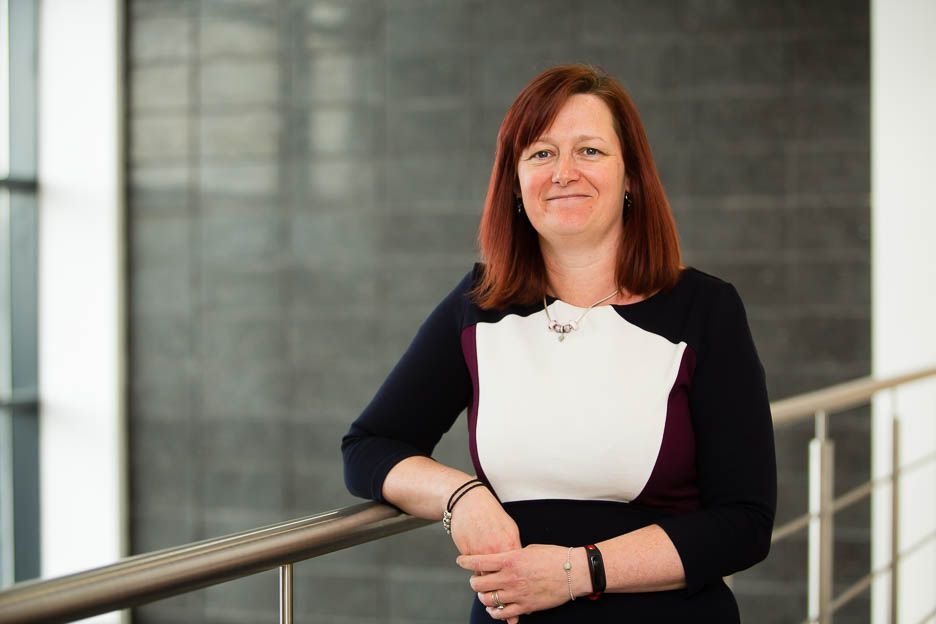 The UK’s first national pledge calling on senior leaders in NHS mental health trusts, public bodies and commissioning organisations to declare their commitment to reduce ethnic inequalities in mental health care was launched last week. Dr Sara Munro, Chief Executive, Leeds and York Partnership NHS Foundation Trust, and CEO Lead for the West Yorkshire and Harrogate Health and Care Partnership: Mental Health, Learning Disabilities and Autism Collaborative, said: “Now, more than ever, we must tackle ethnic inequalities in healthcare. “I’m grateful to the Synergi Collaborative Centre for facilitating system-wide efforts to reduce mental health inequalities experienced by BAME groups, and I am proud to add my signature to this national statement of intent. I know that, together, we can make a meaningful difference to the lives of people from Black, Asian and minority ethnic communities who are experiencing mental health issues, and I join my health and care partners in pledging my commitment and support.” You can read more here.
The UK’s first national pledge calling on senior leaders in NHS mental health trusts, public bodies and commissioning organisations to declare their commitment to reduce ethnic inequalities in mental health care was launched last week. Dr Sara Munro, Chief Executive, Leeds and York Partnership NHS Foundation Trust, and CEO Lead for the West Yorkshire and Harrogate Health and Care Partnership: Mental Health, Learning Disabilities and Autism Collaborative, said: “Now, more than ever, we must tackle ethnic inequalities in healthcare. “I’m grateful to the Synergi Collaborative Centre for facilitating system-wide efforts to reduce mental health inequalities experienced by BAME groups, and I am proud to add my signature to this national statement of intent. I know that, together, we can make a meaningful difference to the lives of people from Black, Asian and minority ethnic communities who are experiencing mental health issues, and I join my health and care partners in pledging my commitment and support.” You can read more here.
West Yorkshire and Harrogate People Board
 The People Board met on Tuesday. The Board is chaired by Brendan Brown, CEO at Airedale NHS Foundation Trust and includes colleagues from partner sectors, including the NHS, local councils and voluntary and community organisations. The Board discussed the latest version of the NHS People Plan, which puts staff wellbeing at the heart of NHS recovery, with measures designed to address new pandemic challenges and improve physical and mental health support for staff.
The People Board met on Tuesday. The Board is chaired by Brendan Brown, CEO at Airedale NHS Foundation Trust and includes colleagues from partner sectors, including the NHS, local councils and voluntary and community organisations. The Board discussed the latest version of the NHS People Plan, which puts staff wellbeing at the heart of NHS recovery, with measures designed to address new pandemic challenges and improve physical and mental health support for staff.
The People Plan builds on innovations driven by staff during the pandemic and sets out how the NHS can embed them. This includes flexible working patterns from January next year, risk assessments for vulnerable staff, including black and ethnic minority colleagues, and encouraging former staff to return to practice as part of a recruitment drive during 2020/21. The recruitment of staff in various roles, including the mental health and cancer workforce will include offers of training grants for 350 nurses to become cancer or chemotherapy specialists, working with universities to increase over 5,000 undergraduate places from September 2020 in nursing, midwifery, allied health professions and dental therapy and hygienist course, and a fund for clinical placements for nurses, midwives and allied health profession are all priority areas.
There was also a discussion on the third phase of the response to COVID-19 and the NHS’s priorities from 1 August. The focus for this phase is on restoring and recovering services and preparing for winter pressure demands. There is also a commitment to tackle health inequalities. Health inequalities have been further exacerbated by the pandemic and as a Partnership we recognise the importance of health providers working closely with local communities and partners to reduce these inequalities.
Board members also discussed the development of a Partnership People Plan.
New films aim to help pregnant BAME women recognise risks from coronavirus
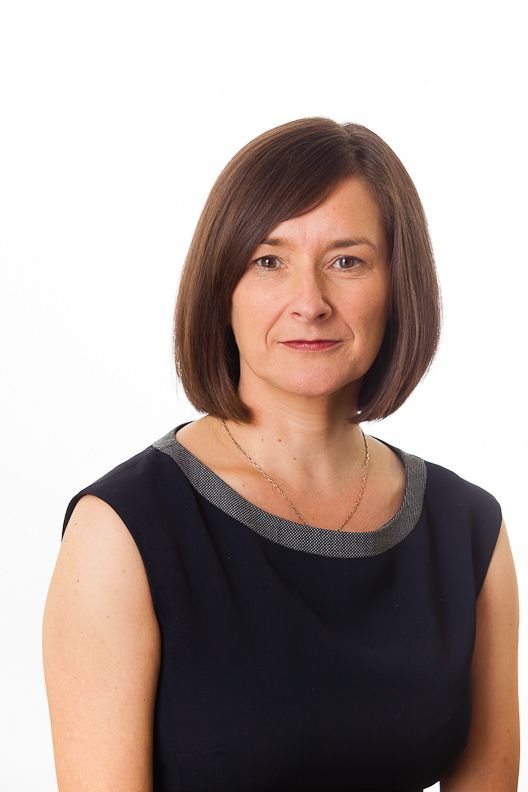 The West Yorkshire and Harrogate Local Maternity System has created a series of films in community languages, delivered by clinicians, which aim to raise awareness among pregnant BAME women about risk factors, signs and symptoms of coronavirus infection and how to protect themselves.
The West Yorkshire and Harrogate Local Maternity System has created a series of films in community languages, delivered by clinicians, which aim to raise awareness among pregnant BAME women about risk factors, signs and symptoms of coronavirus infection and how to protect themselves.
The films advise women that if they, or a member of their household, develop any of the coronavirus symptoms it is important that they stay isolated at home and call their midwife or doctor. Local maternity units are open 24 hours a day to give advice and make care plans for affected women, which may include coming in to hospital.
Carol McKenna, CEO Lead for West Yorkshire and Harrogate Maternity Programme and Chief Officer for NHS Greater Huddersfield CCG and NHS North Kirklees CCG said: “Most pregnant women who contract Coronavirus will experience only mild or moderate symptoms and will recover quickly. But we know that some women, especially those with BMI over 25 or who have diabetes or some other health conditions and women from Asian, Black African Caribbean, Black African and some other ethnic groups are more likely to become very unwell if they contract coronavirus and might need to be cared for in hospital.
Maternity staff across West Yorkshire and Harrogate are fully aware of the extra risks that women from BAME backgrounds face. We want women to know that if they have any concerns about their health or that of their baby they can and should make early contact with their midwife or doctor so that they can be quickly assessed and given all the care that they need.” You can read more here.
Improving Population Health Management Programme
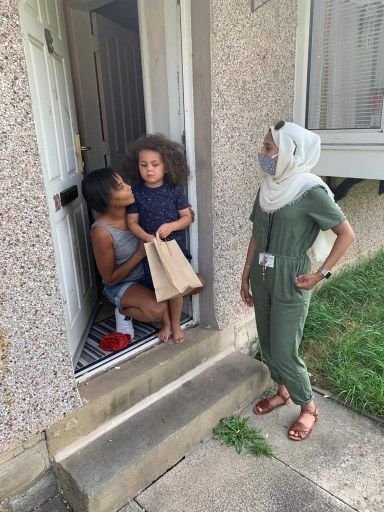 The Programme Board meets today, Friday 14 August and considers a number of priorities.
The Programme Board meets today, Friday 14 August and considers a number of priorities.
The programme is part of the Review on Supporting our BAME communities and staff through development of intelligence packs for ‘deep dive’ areas, with a focus on coding of ethnicity, commissioning and mental health for people from BAME communities.
The programme has developed a framework for ‘Healthy Hospitals’ in West Yorkshire and Harrogate, to guide work on addressing health inequalities in acute and mental health trust settings across the area. Programme leads are presenting the framework and conducting discussions with trusts and place leads in Bradford district and Craven; Calderdale, Harrogate, Kirklees, Leeds and Wakefield, in order to plan an approach and collate good practice examples.
The ‘flatpack’ resource for Health Inequalities Prevention Pathways (HIPP) has been improved and is now available on the website for use across the Partnership. We are using this approach to support other programmes to embed health inequalities work, and to provide insight for the review on supporting BAME communities and staff.
The Network met with the successful applicants for the West Yorkshire and Harrogate Health Inequalities Funding. It was really encouraging to hear directly from all of the projects and to start to make connections with different parts of the system. The next steps will be supporting approaches to evaluation and adding ‘plans on pages’ for each of the projects to the website.
Climate change and economic recovery
The Climate Change steering committee has been formed and met for the first time. This group will provide a strategic forum for advising on the development and delivery of plans to achieve the Partnership’s stated ambition to become, ‘a global leader in responding to the climate emergency through increased mitigation, investment and culture change throughout our system’. A virtual summit discussing climate change is planned for 19 and 20 October.
The regional network has an emerging framework of priorities which include many different aspects of the wider determinants of health and the health and care system.
The climate change group has been contributing to the economic recovery plan. The draft plan has been published and is now being finalised. This plan is particularly important in terms of securing a positive recovery from the economic impacts of COVID – including for example a strong focus on employment and health innovation.
West Yorkshire and Harrogate Area Partnership Group
The West Yorkshire and Harrogate Area Partnership Group (which includes the unions) meet today. The importance of effective partnerships is a core feature of all of our work, and this forum has been established to strengthen our joint working with regional staff side. This will help to ensure we fully support improvements in staff health, safety and wellbeing, whilst also keeping people informed of the work taking place at a West Yorkshire and Harrogate level. The meeting was chaired by Rob Webster, our CEO Partnership Lead, and covered the Partnership’s response to COVID-19 and phase three planning; supporting staff’s health and wellbeing; the BAME communities and staff review.
Looking out for our neighbours – evaluation from Winter 2019/20
This campaign has captured the attention of 550 supporters who agreed to endorse it. Due to the pandemic, this evaluation was paused and picked back up again in June 2020. 49,338+ acts of kindness were carried out. This figure is based on the insight data trend from the first campaign which showed 75% of campaign pack recipients and online content recipients took action. This figure only takes into account web visitors and pack recipients and therefore has the potential to be higher.
Of the 25 interviewees, 20 (80%) agreed that the campaign had a positive impact and had been a success. Many individuals mentioned the importance of the campaign at that time of year, and especially around the onset of COVD-19, “I think it's been great that you've raised awareness about how neighbours can support each other - it's an issue close to our hearts.” Another person said “I think it’s gone very well, particularly important at this time when so many vulnerable people are isolated due to COVID-19. There were many comments including a “positive campaign that was welcome by people in communities” and “The biggest change however has been during the coronavirus pandemic where more and more people have rediscovered a sense of community and neighbourliness.” You can read the report here.
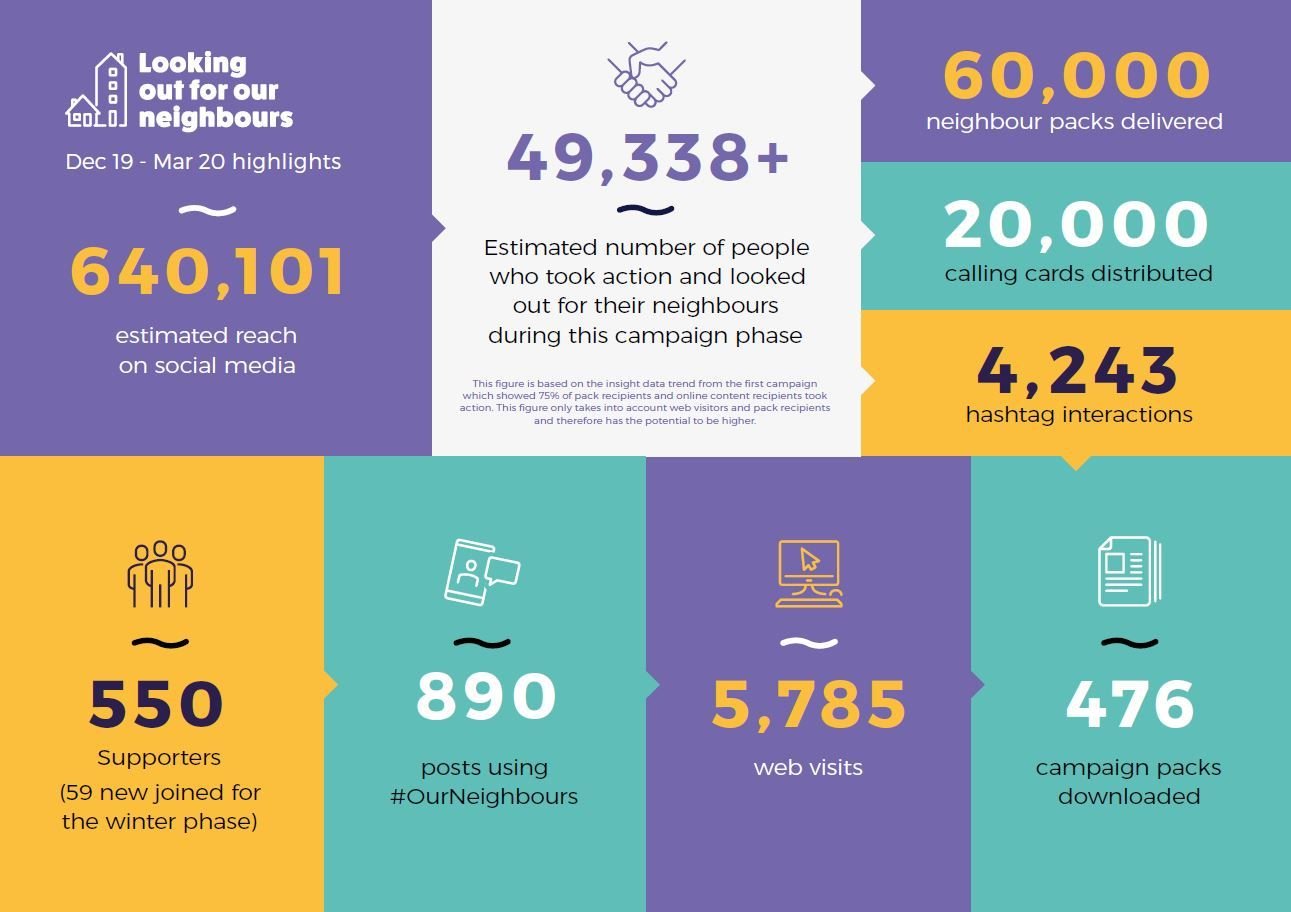
Stay safe in your pharmacy by knowing what to expect
The majority of pharmacies in West Yorkshire are currently back to normal opening hours. Check with your usual pharmacy when they are open if you need to be sure. Your prescription might be sent directly to your pharmacist electronically by your surgery. If this is new for you, just ask and they will tell you how it works and about any changes.


